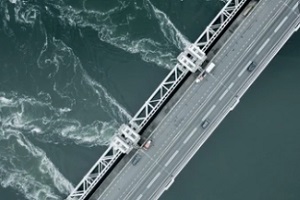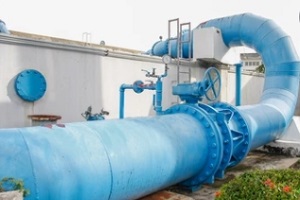 Your facility uses water—that much is almost guaranteed. However, caring for the water system in your building requires more than simply trusting your municipal water supply to treat incoming water. You will need your very own water management plan that is tailored to the specific risks and needs of your building based upon a variety of factors, such as where your water comes from, what it does in your facility and even how your building is structured.
Your facility uses water—that much is almost guaranteed. However, caring for the water system in your building requires more than simply trusting your municipal water supply to treat incoming water. You will need your very own water management plan that is tailored to the specific risks and needs of your building based upon a variety of factors, such as where your water comes from, what it does in your facility and even how your building is structured.
As you develop a water management plan, do not forget to consider the following tips so that you can create a strategy that is effective and lasts for the long term.
Assemble Your Most Trusted Team
While it is important to bring together a group of experienced people from a variety of skill sets to oversee your water, this step is more than just a preference. ASHRAE 188 requires that a team be established to serve as the point of contact and adaptation for your facility’s water management plan.
At the very least, your trusted team should include a facility executive, a manager and a professional experienced in legionella risk prevention and management. However, you should also consider individuals experienced in environmental safety as well as those who are working in areas affected by water (such as cooling tower maintenance workers).
Identify Risks Based On Real Data For Your Water Management Plan
Your water management plan cannot operate using a cookie-cutter formula; what works for one facility may not work for another. When you are in the process of developing your plan, take the time to either secure past documents or create for the first time a map of your water system. This will enable you to accurately identify not only risks but how to address them effectively.
Slow and stagnant water remains a consistent threat, as the chemicals and treatments that you implement may have a difficult time reaching these areas. Depending on the location and what your facilities equipment is using water for may pose more of a threat than others. For example, cooling towers are the most common culprit for the spread of Legionella and should be thoroughly treated.
Monitor And Adjust Strategies As Needed
Developing a water management plan does no good if you do not actively continue to monitor and revise it. A water management plan is not a static document; rather, you will continue to develop it over time as your strategies and recommendations change. You will need to set control limits that help you to monitor whether your treatments, disinfection and other choices are making a substantial difference in your building’s water.
 Creating strict control limits will give you a clear idea of when to begin taking action, before a problem balloons into an outbreak or damages your equipment.
Creating strict control limits will give you a clear idea of when to begin taking action, before a problem balloons into an outbreak or damages your equipment.
You should also either be prepared to act quickly on your own or work with an expert water treatment team so that you can move immediately into remediation if your water exceeds the bounds of acceptable limits in areas such as Legionella or mineral content. This includes the ability to flush, disinfect, heat, cool or filter your water on short notice.
Document All Of Your Activities
A water management plan does not exist in a vacuum; rather, it is part of a larger set of documents that must be regularly maintained and updated in order to fulfill your compliance with state and local regulations. As you develop your water management plan, be sure to also spend some time laying out the documentation practices that you intend to implement so that they become standard and a regular part of operations.
All activities performed that are related to the water system, including disinfection, cleaning, testing and amendments to the water management plan, must be documented so that your work history can be provided for compliance reasons.
Get A Comprehensive Water Management Plan From lCS
Creating a water management plan for the first time or figuring out how to update it to address risks and challenges that have arisen can feel overwhelming. However, you do not need to tackle this project on your own.
The experts at Tower Water understand that navigating compliance in your water system requires in-depth knowledge not only of the regulations but also of your specific building, which is why we are happy to evaluate your facility and create a customized water management plan that is suited specifically to you. Reach out to schedule an appointment to receive help with your plan or to get started.
